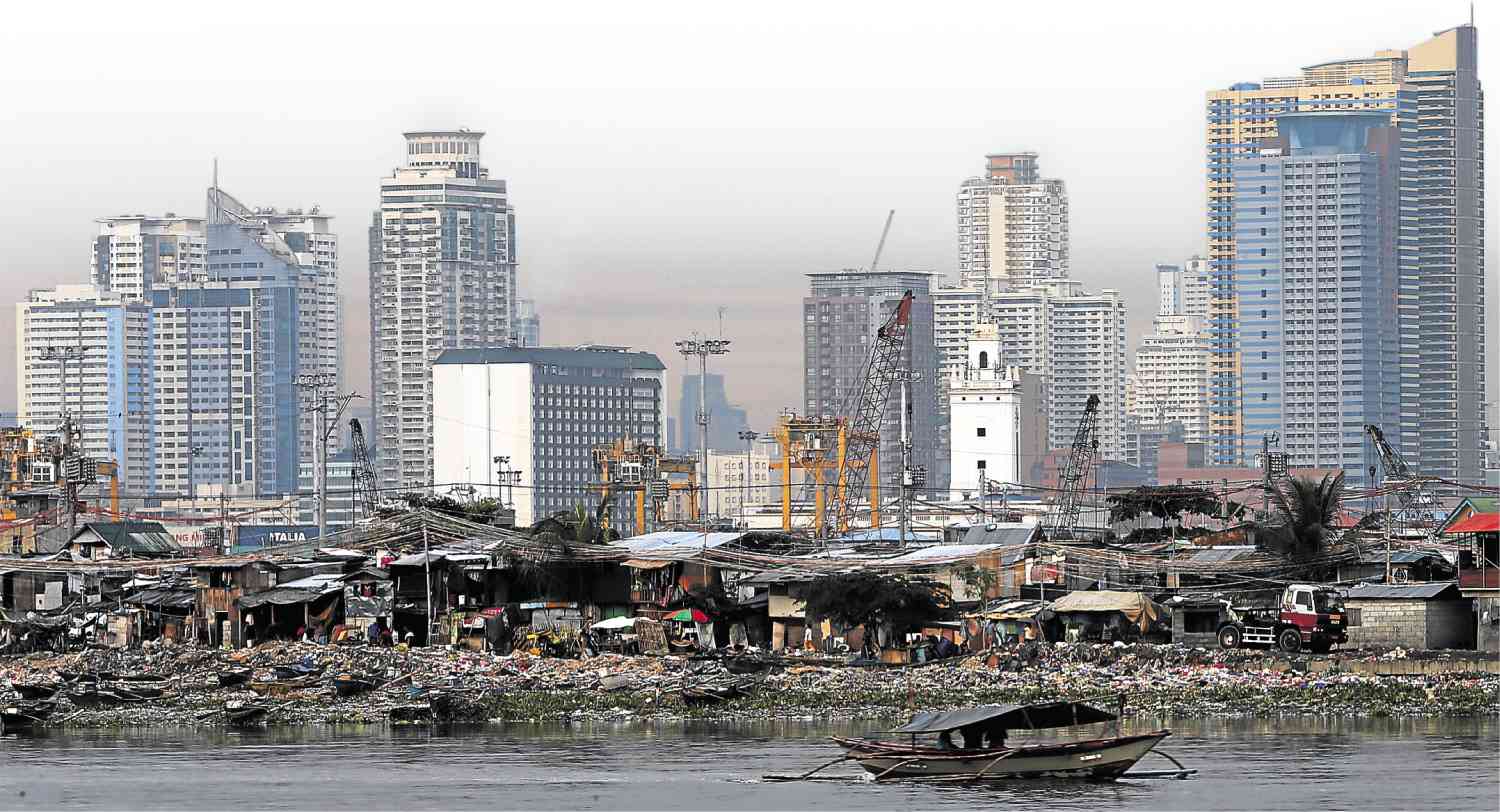
The row of shanties comprising the Baseco compound in Manila. (INQUIRER FILE PHOTO / EDWIN BACASMAS)
MANILA, Philippines — The House committee on housing and urban development has approved a substitute bill creating a local government resettlement program that will implement an on-site, in-city, near-city, or off-city resettlement strategy for informal settler families.
Cagayan de Oro City Rep. Rufus Rodriguez, who authored House Bill No. 4869 which was included in the substitute bill, said that under the approved measure, informal settler families and local government units (LGUs) will be extensively involved in the formulation of a resettlement plan for the homeless.
The lawmaker added that the bill also provides for sufficient consultations and hearings, where affected families and civil society organizations will be asked to participate.
Rodriguez added that the Department of Human Settlements and Urban Development, in tandem with LGUs, will be in charge of providing basic services and livelihood for the relocated families.
Rodriguez said that at present, the government’s policy on housing and resettlement is primarily off-site relocation.
“The government builds houses for informal settler families in areas outside Metro Manila or in rural areas in Cagayan de Oro, where there is lack of employment, sustainable livelihood, and social services,” Rodriguez said in a statement.
However, Rodriguez pointed out that many of those relocated return to Metro Manila and other cities for employment and other social services.
“Thus the need for onsite, in-city or near-city resettlement, which upholds the urban poor’s right to the city in order to comply with our Constitution’s mandate to give Filipinos affordable and decent housing,” Rodriguez said.
Citing a 2016 study conducted by the University of Asia and the Pacific, Rodriguez said the Philippines will have a housing need of 12.3 million by 2030.
Rodriguez said the same study found that private developers were building homes mostly for the rich and the middle class, while the government takes care of the poor’s housing needs.
Aside from Rodriguez, the other authors of the consolidated bill are House committee on housing and urban development chairperson Strike Revilla as well as Negros Occidental Rep. Jose Francisco Benitez; Quezon City Reps. Jose Christopher Belmonte and Alfred Vargas; Rizal Rep. Juan Fidel Nograles; Manila Rep. Jonh Marvin Nieto; Cavite Rep. Francis Gerald Abaya; Kabayan Partylist Rep. Ron Salo; and Bahay Partylist Rep. Naealla Aguinaldo.